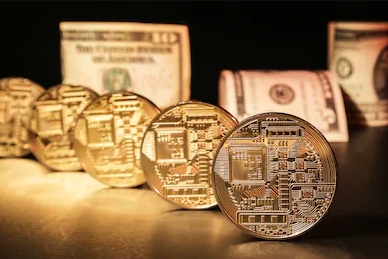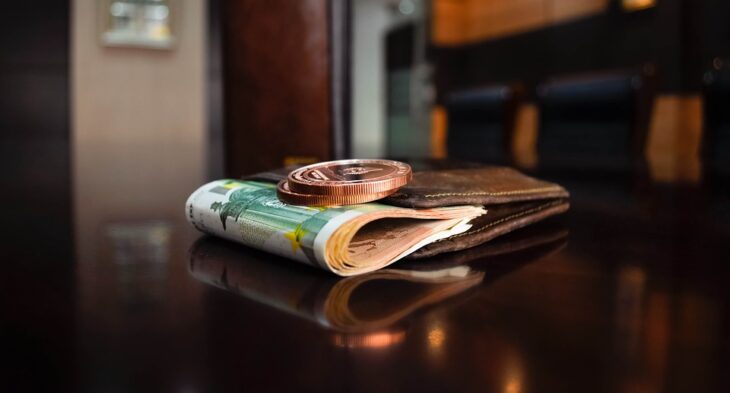A token is a virtual (digital) unit of accounting used to denote the digital balance of an asset or service provided. The process of digitizing assets and services is called tokenization. All operations are carried out using distributed registers (blockchains).
Types of tokens
Today, there are three types of tokens, which give the owner different privileges, rights, and opportunities.
- Security tokens are tokens that grant the owner almost the same rights as the securities/shares of the company on the stock market (participation in management, rights to the company’s capital, dividends, etc.).
- Useful (utilities, Utility tokens) are tokens that give the owner a certain value within the product/service (game currency, discounts, etc.).
- Asset-backed tokens are tokens that provide the owner with the obligation to exchange them for real goods or services (labor hours, an ounce of gold, etc.).
How are tokens represented?
 An asset-backed token’s value derives from the underlying asset which backs it. In this case, they act as a digital analogue of a real asset or service. For example, one token can be equivalent to 1 hour of consultation with a specialist, or 1 liter of gasoline at a gas station. The company that issues such tokens guarantees the possibility of exchanging these digital assets for real ones, as well as for goods or services.
An asset-backed token’s value derives from the underlying asset which backs it. In this case, they act as a digital analogue of a real asset or service. For example, one token can be equivalent to 1 hour of consultation with a specialist, or 1 liter of gasoline at a gas station. The company that issues such tokens guarantees the possibility of exchanging these digital assets for real ones, as well as for goods or services.
Tokenization of assets
Tokenization is the process of creating a token, or more precisely, the process of digitizing accounting and management of the assets and services and presenting them as tokens. This is how digital analogues for real world values are created. You can tokenize anything. Some projects, for example, offer payment in tokens for a certain number of completed steps. In this case, human physical activity is tokenized.
What is the difference between a token and a cryptocurrency?
A token, by its nature, is a kind of securities: it may give different rights to the owner to receive certain benefits in the future. Cryptocurrency is a digital analogue of money. The key difference is in the issuance, that is cryptocurrencies are issued in a decentralized way through the mining process, and tokens are centralized by one company (usually through the ICO procedure).
How to buy tokens?
The most common way to get tokens is to participate in an ICO project that emits them.
However, tokens, as well as cryptocurrencies, can be purchased through exchanges or through transactions directly between the buyer and the seller (for example, through special chats in messengers). In the latter case, it is recommended to be cautious, as there are many scammers in the network. By sending a token fee to the seller’s digital wallet, you may not receive anything in return. Therefore, often the parties to the transaction use escrow-services. They resort to the help of a trusted person who acts as a guarantor of the transaction.
Where to keep tokens?
The process of keeping the tokens and making transactions with them is similar to the same processes with cryptocurrencies. Specialized wallets are used for tokens, with the vast majority of tokens using a single format (ERC20) and based on the Ethereum platform.
Pros and cons of tokenization

Tokenization has certain advantages:
- It accelerates the exchange of values, as it does not require the movement of real assets.
- It increases trade liquidity in tokenized goods/services.
- It increases the transactions security by using blockchain technology.
- It removes the need to use intermediaries (using smart contracts).
- It reduces operating costs of the issuing company.
- It adds new properties to an asset, such as the ability to split an indivisible asset.
On the other hand, the token has some disadvantages like any other crypto asset:
- There are no regulations and this creates risks when working with tokenized assets.
- Users’ private keys may be lost or stolen.
- There is a privacy problem in public blockchains – all data must be open and publicly available.
Read more
https://fortraders.org/en/forex-education/crypto/what-is-a-smart-contract.html



 SP500
SP500 FTSE
FTSE FCE
FCE Nasdaq100
Nasdaq100 Russell2000
Russell2000 Index Nikkei225
Index Nikkei225 DOW 30 (DJI)
DOW 30 (DJI) RTS futures
RTS futures RTSI
RTSI DAX30
DAX30 eBay Inc.
eBay Inc. Google Inc.
Google Inc. IBM Corp.
IBM Corp. Microsoft
Microsoft  Apple
Apple Yandex
Yandex Toyota
Toyota Volkswagen
Volkswagen Facebook
Facebook Tesla
Tesla Twitter
Twitter Hasbro
Hasbro Bitcoin
Bitcoin Litecoin
Litecoin BitcoinCash
BitcoinCash Dash
Dash Ripple
Ripple Ethereum
Ethereum EmerCoin
EmerCoin NameCoin
NameCoin PeerCoin
PeerCoin Monero
Monero ETC/USD
ETC/USD Silver
Silver Platinum
Platinum Palladium
Palladium Copper
Copper Gold
Gold